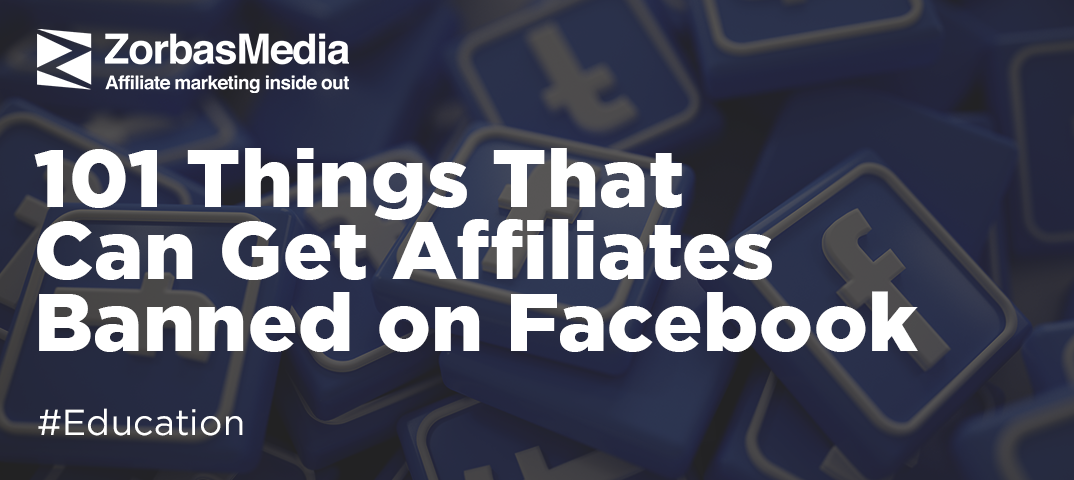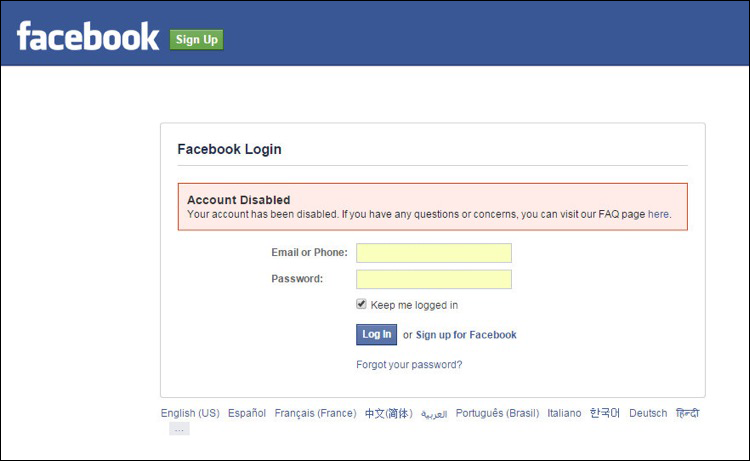
This article is not about bypassing Facebook’s ban. On the contrary, it deals with how to avoid getting banned in the first place. We are going to break down the most common reasons why your new account can be banned from Facebook.
Suspicious activity
For the sake of simplicity, I will describe a standard formula of account farming on Facebook. This formula and a wide variety of its modifications have long been present on this social network, and so Facebook’s system can now detect a potential farmer based on a number of factors and either ban your account or ask for selfies to confirm your identity.
1. Using a new email account for registration
Google won’t be able to find a newly created email address, as it has not been used for registering on other platforms. This fact will obviously provoke suspicion and Facebook can block your account unless you send them a selfie.
2. Quick account warm-up
A typical approach to warming up a fresh Facebook account would be to add a profile picture, follow a few public pages, scroll down the news feed and like other users. In general, you just try to imitate an ordinary user’s actions. However, it’s not as simple as that. Facebook has long been aware of these fraud schemes and such actions can seem suspicious to Facebook’s system. But why?
The thing is that a real user can actually start performing the same actions after the registration, only that they will do it much more slowly. First of all, they will need to familiarize themselves with Facebook’s interface (which is notoriously bad).
Affiliates, on the other hand, won’t waste a lot of time on imitating “target” actions. Rather, they will perform them quickly and then move on to other accounts, and so Facebook can see this as suspicious.
3. Creating an ad account too quickly
This is even more obvious. After warming-up an account, an affiliate logs into an ad account and performs a number of actions. Now Facebook can clearly identify a pattern of work it has long been familiar with. And if the first two points only provoke suspicion and won’t lead to a ban, now the system knows for sure that it deals with an account farmer.
4. Huge ad campaign spend
Even if you haven’t got banned up to this point, you won’t be able to stay away from bans now. An affiliate starts creating ad campaigns and fork over a lot of money to be able to launch as many campaigns as possible before the account gets banned. And if the system detects creatives or domains that have been used before, then a ban is imminent.
To put it simply, if you start spending from $500 to $1600 a day on advertising right away, Facebook will consider it highly suspicious.
Even if you opt for prepayment and deposit a relatively large amount of money (from $650), you can get banned before actually starting to spend it on your campaigns.
If you can’t appeal a Facebook ban and unblock your account, you will lose all your money.
Approaches to advertising
Even if you have managed to avoid getting banned so far, you are still not safe. Now, Facebook is going to monitor what you are running, how you make payments, what country you are launching your ads from, what images and texts you use in your creatives and what your landing pages look like. If Facebook considers your methods of work inappropriate, it can block your ad campaign but not your account if you are lucky.
So, let’s consider some key things that can get you banned from Facebook.
Bans associated with payment methods
1. Your profile name is not the same as your bank card name
If you opted for payment by card, then be sure to note that even if your name on your credit card is only one symbol different from your profile name, Facebook will decide that you’re using someone else’s credit card and block your ad campaign.
2. Using a card registered in another country
If you live in Russia and target the USA audience, then your bank card must be registered in the USA. Otherwise, Facebook will get suspicious, which can get you banned.
3. Virtual card
Facebook doesn’t like them because they do not specify the name of the holder quite often. Check the paragraph above for more information.
4. Changing a payment method
Strangely enough, this can also cause suspicion and get you banned from Facebook.
Bans associated with actions within an ad campaign
You added a user with a bad reputation on Facebook to your campaign
If your client or colleague uses an account with a bad reputation (that was either previously banned for violations or a business page or ad account attached to it was banned), they should create a new “clean” account.
You have some rejected creatives
Facebook automatically checks all ads after each change in its advertising policy. If you still have some old creatives that were not approved and didn’t pass additional moderation, your account will get banned.
Suspicious actions linked to account hacking
It’s pretty straightforward: if you use hacked accounts, expect retaliation in the form of bans.
Bans associated with the content of your ads
Videos or pictures that are not unique
Facebook always checks all your creatives for uniqueness. If you haven’t made your video or image from scratch and haven’t unequalized it, there’s a good chance you will be banned.
To check your image for uniqueness, you can use Google Images Search. Upload your image to the system and if there’s at least one match, your picture needs to be revised. Alternatively, you can use special services such as Tineye.
Promoting offers or verticals prohibited in your country’s territory
For instance, it’s prohibited to promote alcohol in Russia but it is allowed in certain countries if you observe age limits. Gambling ads are banned from a lot of states. Dating websites can also be prohibited in some countries.
Posting creatives that violate Facebook’s policies
Facebook imposes a lot of rules on affiliates. If your creatives violate some of them, you will be banned even if you drive traffic to whitehat offers. It may happen that you manage to bypass the system, but sooner or later your account will be banned for good.
So, what are the reasons for Facebook to block your ads?
- Promoting blackhat offers.
- Adult content.
- “Before/after” ads promoting nutra.
- Discrimination of any kind.
- Promoting tobacco products.
- Promoting medicines.
- Promoting certain nutritional supplements.
- Promoting weapons.
- Poor-quality creatives.
- Misleading creatives.
- Links to webpages that are not working.
- Promoting surveillance equipment.
- Offensive language.
- References to the user’s personal health.
- Promoting microloans.
- Multi-level marketing.
- Ads causing low self-esteem.
- Scandinavian auctions.
- Malware.
- Automatic animation.
- Attempts at fooling the system.
- Promoting document forging services.
- Using fake sensational news in your ads.
We highly recommend you check out Facebook’s advertising policies.
Complaints
If users regularly complain about your ads, they will be sent for review. If your ads violate the social network’s policies, your account will be banned. What can users actually complain about? Firstly, it can be established that you resort to fraud or promise unrealistic results. Secondly, the content of your landing page does not match that of your ads. Thirdly, your creative can be considered offensive.
If your ads don’t violate the platform’s rules, you won’t get banned irrespective of the number of complaints.
Bans associated with your landing
Inconsistency between your landing and your ads
We have already mentioned this. If the content of your landing page does not match the product you are promoting, users will start complaining about your ads. As the inconsistency between your landing and your ads is a direct violation of Facebook’s rules, you will get banned.
Redirects and pre-landers
Fraudsters often use redirects, and so Facebook is very suspicious about them. There’s a good chance you will be banned.
Scripts on your landing
In addition to redirects, there’s a number of things on your landing that Facebook won’t tolerate:
- autoplay media files;
- a pop-up window with a notification request (meaning that the user can’t access the website unless they subscribe to notifications);
- pop-ups with third-party ads.
User data
Apart from monitoring your actions, Facebook also gets access to your user data, which allows the system to learn a lot about your true intentions.
So, Facebook always knows about your:
- IPv4 and IPv6;
- browser and its version;
- screen resolution;
- region.
And this list can be expanded considerably.
So, why Facebook can decide to ban you based on your user data?
- All your accounts have similar user data.
- You use a VPN regularly.
- You change browser language.
- You change your passwords, email address and profile name frequently.
- You use an IP of a less trusted GEO such as Russia or CIS countries.
- You use Windows. Not that Facebook will ban you because you haven’t bought a MacBook. The thing is that Windows is a less trusted system, and so Facebook is more likely to ban you if it has already detected some suspicious activity.
So, we have enumerated all the major reasons behind account bans. Of course, there is also a lot of hidden stumbling blocks that can get you banned, while Facebook’s protection mechanisms are getting smarter each day. However, sometimes your account can be banned because of some stupid mistake, and that’s why you can’t avoid bans altogether when working with multiple accounts. If you manage not to violate the rules or bypass them, bans will get much less frequent.
If your account gets banned despite all your efforts, don’t worry, as the ban can always be lifted. This will be the topic of our next article. Stay tuned!
If you want to reach new GEOs and audiences, maybe it is all waiting for you on Telegram? We’ve prepared some material about Telegram audiences. What are the messenger’s users like this year? How old they are, what they do, and what they are interested in!





